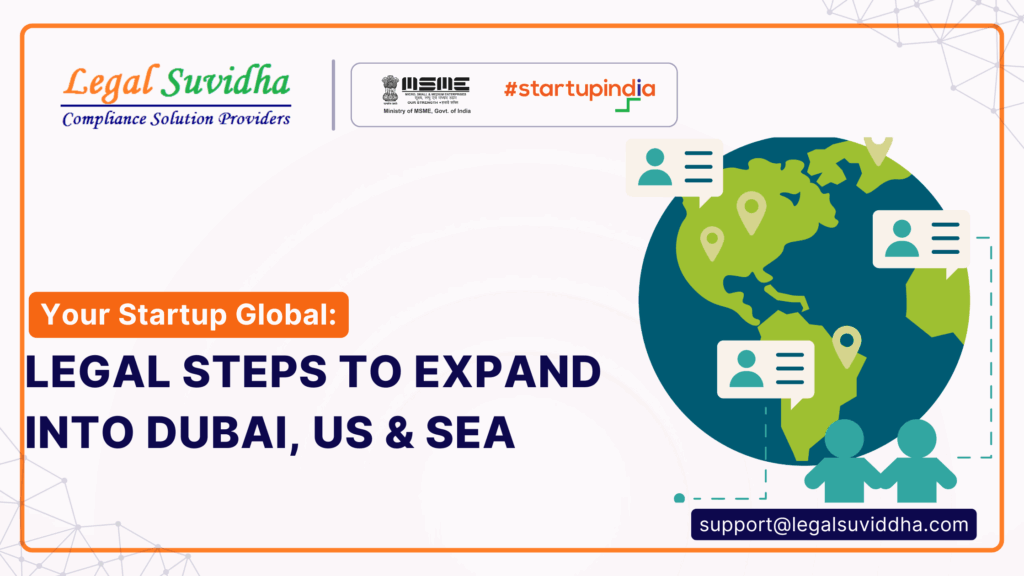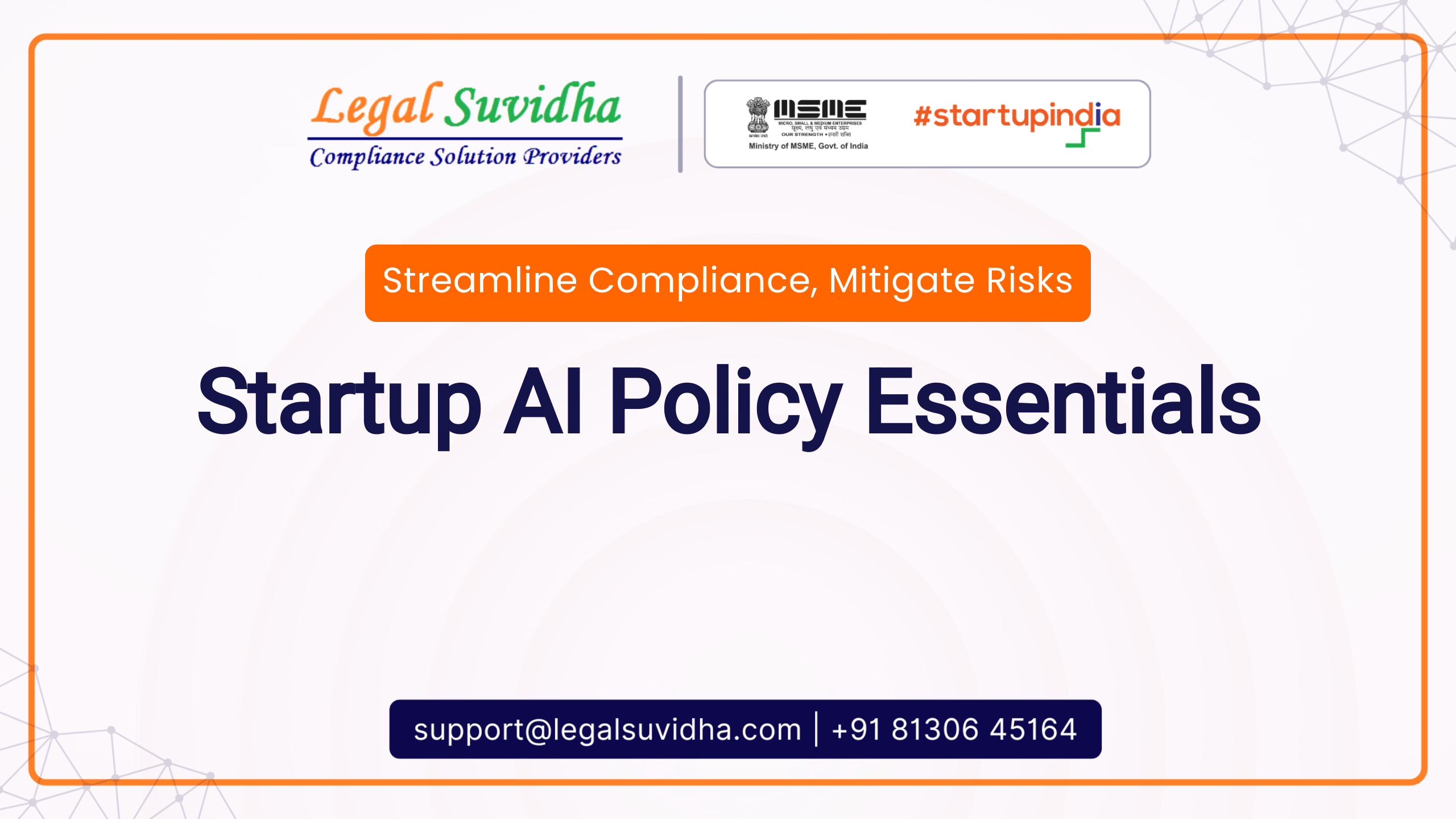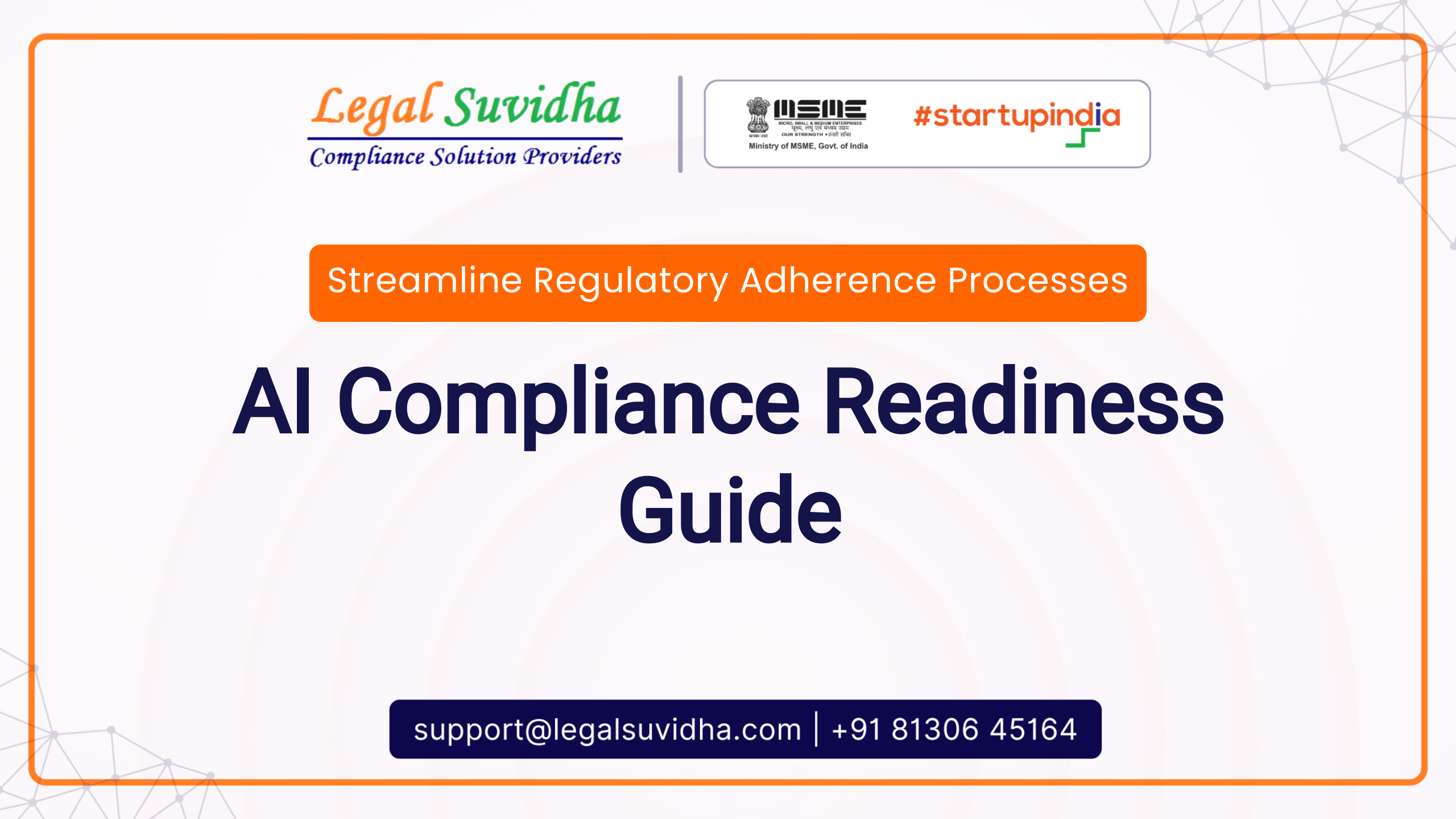Taking Your Startup Global: Legal Steps to Expand into Dubai, US & SEA
The Dream and the Dilemma
Amit had built something incredible.
A B2B SaaS tool from Gurugram that started getting love from clients in the UAE and Singapore. One US client even said, we’d love to scale this across our whole company.
Amit was excited. He booked calls with VCs, drafted expansion strategies, and even registered domains for a global presence.
But in less than two weeks, things began to unravel.
The client in Dubai asked for a local trade license to sign the deal.
The US investor flagged no Delaware entity? in due diligence.
The Singapore firm backed off when he couldn’t provide a local tax ID and cross-border contract structure.
His dream of taking the startup global hit a wall — the legal wall.
The Bigger Trap Founders Don’t Talk About
Many founders believe going global is just about:
Opening a Stripe Atlas account
Hiring a local rep
Or using Zoom and Slack across time zones
But the truth is brutal — every jurisdiction has its own regulatory maze.
Dubai requires specific economic zone setups (like IFZA or DMCC) and resident directorship.
The US demands you know your Delaware C-Corp from an LLC — plus IRS compliance and DPA filings.
Singapore & SEA markets operate on frameworks like ACRA, local nominee directors, and annual audits.
Founders make costly mistakes like:
Using freelance contracts in countries where they are illegal
Sending invoices without GST/VAT compliance
Missing out on tax treaties that could save lakhs
These missteps don’t just delay you — they can shut down opportunities.
Magic of Knowing the Legal Path
Now imagine this:
You expand into Dubai with the right freezone structure (IFZA, no local sponsor needed), no hidden taxes, and bank accounts opened in days.
In the US, your C-Corp is Delaware-registered, IRS-compliant, with a local EIN. Investors love the structure. You’re acquisition-ready.
In Singapore, your company is set up via ACRA with a local nominee director, and you’re taking advantage of zero capital gains tax.
It’s not a fantasy — it’s what happens when you follow the right legal steps to expand your startup globally.
And it changes everything.
4. Your Global Expansion Legal Checklist
Here’s a simplified checklist that startup founders should follow when Taking Your Startup Global: Legal Steps to Expand into Dubai, US & SEA:
Dubai:
Choose the right Free Zone (IFZA, DMCC, etc.)
Resident visa for founder/director
Open UAE business bank account
United States:
Register a Delaware C-Corp (or LLC if bootstrapping)
Get EIN and IRS filings
Appoint a US registered agent
Draft cross-border agreements in line with US law
Singapore & SEA:
Register with ACRA (Singapore authority)
Appoint nominee director
Understand PE (Permanent Establishment) rules
Comply with annual filings & local employment laws
Bonus Tip: Structure your IP ownership, revenue recognition, and ESOPs so that they’re globally compliant but locally tax-efficient.
Final Push: Scaling Globally with Confidence
Startup success isn’t just product-market fit anymore.
It’s about jurisdiction-market fit too.
Legal compliance is the foundation that lets you scale sustainably and safely.
When you’re taking your startup global, legal clarity gives you:
Faster funding approvals
Smoother M&A exits
Clean cap tables and due diligence wins
Peace of mind during international expansions
That’s why thousands of founders now take legal setup as seriously as MVP development.
The next 6 months could define your global presence.
You have two options:
❌ Option 1: Ignore the legal setup
rely on hope, and risk deals, funding, and future growth.
✅ Option 2: Get expert help from Legal Suvidha
— India’s trusted partner in Taking Your Startup Global: Legal Steps to Expand into Dubai, US & SEA.
From entity structuring to compliance and tax setups across jurisdictions — we handle it all.
Connect with our Domain Expert or reach out via WhatsApp for instant help.
📱 Phone: 8130645164
📧 Email: [email protected]
🌐 Website: www.legalsuvidha.com
Startup Compliance in India: 2025 Guide
ROC Filings Month-by-Month Calendar
How to Structure Your Founder Salary to Save Tax









